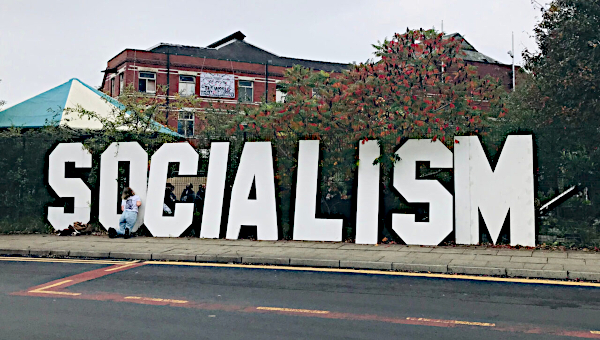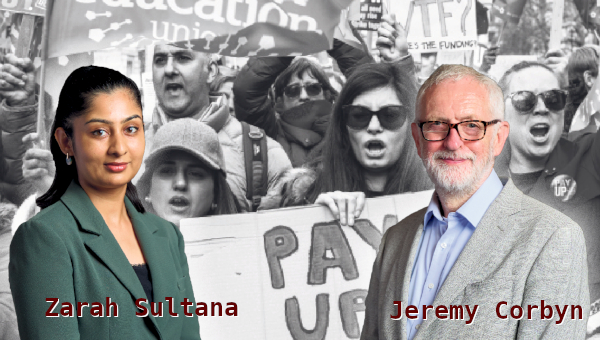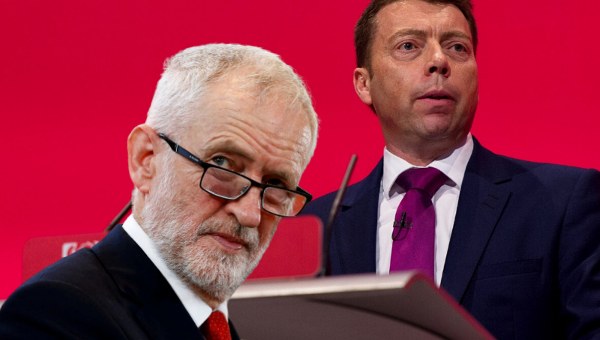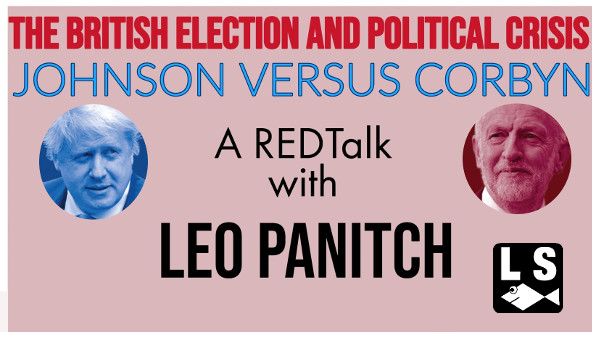Preface to Proposal
Following decades of neoliberalism, where a massive redistribution of wealth and power has taken place in favour of the rich, the capitalist system now finds itself in serious crisis.
The preceding epoch, characterised primarily by a slavish reliance upon the financial sector – itself based on uncontrolled, free-flowing circulation of money – has led to politics in this country being defined by submission to those with financial clout.
Austerity measures are as deadly as they are unpopular. The privatisation of our public goods and services and the marketisation of health and education are added to the managed decline of our country’s productive base and the seismic reduction in our welfare state. Our democratic institutions have never been weaker, and attacks on organised labour are employed to maintain capital’s dominance over the lives, aspirations and futures of the working people.
The unemployment rate in the United Kingdom is at about 4.6% – an extremely massaged figure. This is, however, more than doubled amongst our young, with 13% of 18 to 24 year olds struggling to find work.
International capital continues to colonise the ‘third world’ in the ruthless pursuit of profit, accelerating local tensions, leading to war, increased migration, and the refugee crisis. The United States – the world’s largest superpower – faces internal crisis, with a white supremacist occupying the White House and a rising neo-fascist movement steadily gaining ground in both the New and Old World. Bloody and vicious wars stoked by Western foreign policy continue to destroy the Middle East; on a note of pride, our young members can be counted among those fighting in the ranks of the Peoples’ Protection Units (YPG) and the Bob Crow Brigade, fighting the fascist plague of Da’esh.
The European Union is rupturing and divided; no longer able or willing to maintain the social partnerships of old, capital’s mask has slipped across the whole of Europe – and rocked further still by the decision of the British people over a year ago to break from the institutions of continental government.
Labour Party – Decisive Shift to Left
It is at this conjecture that the Labour Party has achieved new purpose. No longer content with reproducing market-driven economic logic within its own ranks, Labour has shifted decisively to the left under Jeremy Corbyn. Hundreds of thousands of people – significantly the young of our country – have been moved to political action for the first time.
This exciting renewal of our party, once so hastily written off, has opened a door to a whole new world of social and economic possibility. For the first time in a generation, socialism is back on the agenda.
For the past three decades, power inside the party has been decisively concentrated in the hands of the few. Despite our party’s name, Labour’s practices, behaviour and structure reflects the class that stands opposed to our own. Top-down and managerial structures within Labour are viewed with a wide distrust and justified contempt from the overwhelming majority of the membership, a mere play thing for those with real power.
This could not be exemplified more clearly than amongst our party’s youth. Deprived of both human and financial resources, Young Labour is but a mere shell of what it could be. Despite our party having some 110,000 members under the age of 27, Young Labour is still far too much of an afterthought in the minds of cynical decision-makers – and our young members, who feel little organic identification with Young Labour. Without a solid, visible and coherent youth movement to develop their intellectual and organisational capacities, our young members are little more than fodder for doorstep campaigning, capable of short-term voter mobilisations and little more.
The Democracy Review provides an opportunity for our party’s youth to break with the chains that bind us.
We are an (aspiring) socialist party, committed to the establishment and the building of a socialist society. But before that can be done, we must first engage in a primary organisational task – to rid ourselves of the rigid, stale structures and practices of an outdated, exhausted Labour Party.
We need to make, teach and keep young socialists. We must encourage and develop the young so that they can both understand and change the world, since to do so would require the unleashing of the creative of potential of hundreds and thousands of committed young people moved by the desire to build society anew.
This paper seeks to outline ideas as to how this sentiment can be borne in reality.
“This century has already witnessed a steady professionalisation of politics, the fetishism of the party machine, the cult of leadership. As a result, the impact which the non-professional politically interested individual is able to make upon political life has become frighteningly small. Whatever contributes to the growth of his significance also contributes to the vitality of democratic politics.”
Ralph Miliband,
Party Democracy and Parliamentary Government (1958)
The establishment of Young Labour in 1993 was a dubious act in itself – the result of a conscious, managed decline of its predecessor, the Labour Party Young Socialists (LPYS) by a party apparatus wary of ideas and autonomy. This managerialism became a structural feature of the organisation: stripped of the power and the resources of the LPYS, Young Labour – and its National Committee – became little more than the visible face of token representation.
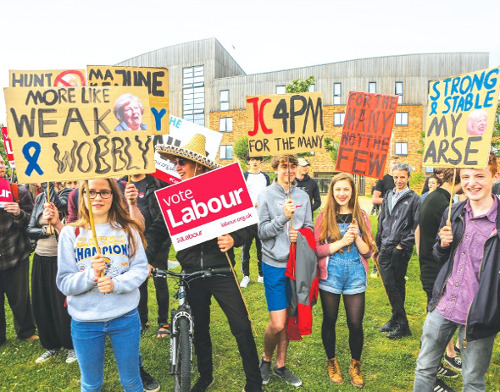 As a result of this neutering of a once-vibrant, left-leaning organisation, passivity has bred. Local organisation of Young Labour branches is often non-existent, excluding a smattering of disorganised youth sections centred around urban areas. Nationally, a lack of resources makes serious campaigning beyond basic electoralism practically impossible. Political education – the very bread and butter of the socialist movement – has been put on the backburner; when our members are taught, they are taught to follow, not to lead. Struggles to end discrimination and liberate those marginalised on the basis of sex, gender, gender identity, race, sexual orientation, disability and religion are undermined particularly strongly by this state of affairs, and agitation on these issues must and will be at the heart not only of education initiatives but all Young Labour activities.
As a result of this neutering of a once-vibrant, left-leaning organisation, passivity has bred. Local organisation of Young Labour branches is often non-existent, excluding a smattering of disorganised youth sections centred around urban areas. Nationally, a lack of resources makes serious campaigning beyond basic electoralism practically impossible. Political education – the very bread and butter of the socialist movement – has been put on the backburner; when our members are taught, they are taught to follow, not to lead. Struggles to end discrimination and liberate those marginalised on the basis of sex, gender, gender identity, race, sexual orientation, disability and religion are undermined particularly strongly by this state of affairs, and agitation on these issues must and will be at the heart not only of education initiatives but all Young Labour activities.
What little democracy the organisation had leads to nowhere, with more power in the hands of Labour’s NEC and staff than in the elected governing body of Young Labour. The rise in party youth membership over the past two and a half years cannot be attributed to the efforts of the party’s youth wing because – as far as too many are concerned – the party’s youth wing does not exist. Young Labour has little to no social base in neither the party nor the country, and to address this by democratic reform will not only help positively transform Labour but also our country.
Political Education, Political Education
Ignorance may be bliss for some, but ignorance maintains the way things are. As previously stated, the primary role of Young Labour is ‘make, teach and keep’ socialists. The role of political education is to end one’s alienation from ideas – and alongside recruitment and retention, our task must be to build the political and organisational quality of our party’s youth in order to both understand and resist capitalism.
Above all other sections of the party, Young Labour is fertile ground for this political work. Free from tired old dogmas, the party youth upon arrival into our ranks are often a ‘blank canvas’. For Young Labour to make a lasting impact on our membership as political actors, it must be an inspirational key to shaping the political outlook of millions of young people.
Thus, in the age of Labour’s mass membership, it is the role of Young Labour to transform itself into a school of ideas – the ‘university for the working class’, a vibrant and dynamic factory of ideas. Political education in our party will of course be pluralistic, and it will be as vocational as it is academic. Analysis and action will go hand in hand – the role of Young Labour is to turn young people from party members into party militants, capable of delivering for the Labour Party both intellectually and practically.
“
Preaching socialism will only get us so far – we have to live it.
”
Young Labour should draw upon the knowledge of the party membership and wider socialist intelligentsia in developing a wide ranging multifaceted political education programme of the left. Teaching everything from state theory to running a food bank, from knocking on doors to building for a mass demonstration.
The process of developing a socialist youth culture first requires liberating ourselves from capital’s mindset, preaching socialism will only get us so far – we have to live it. Insofar as we work to educate ourselves it must always be with the intention to encourage others to do the same, young members must take what they learn and use it to address the everyday concerns of the masses in a practical way – to encourage others to think differently is the most socialist act of all; anything less serves the creation of a passive and stale movement, and that is not the movement we need.
Corbynism from Below
It should also be emphasised that the role of Young Labour in the new era is not only to campaign for a general election victory, but to attempt to improve the lives of the working people in the here and now.
Clause I of the Labour Party rulebook states that the role of the party is “to organise and maintain in Parliament and in the country a political Labour Party.” No one – certainly not the youth who are in dire need of a Labour government – would deny the importance of this.
But for far too long the party has been concerned almost entirely with electoralism, leaving extra-parliamentary campaigning by the wayside.
The consistent defeats faced by our movement laid waste to the once-vibrant socialist culture that existed in our working class communities and areas. Political networks and grounded sentiments of collective resistance and counter-authority to the ruling order, built up over generations by the labour movement, are no longer as significant or influential as they once were. As Labour retreated from day-to-day engagement with ordinary people, our traditional base of support became increasingly detached from us, and often dropped out of voting or turned to the far-right for political answers and practical solutions.
However, our mass membership allows us to change this situation. Some studies estimate that over 120,000 people have died as a result of Tory austerity policies – it is not acceptable now (if it ever has been) to simply tell Labour voters to wait for the next election for a change in their lives to come. The people need the aid of the Labour Party now.
In his thoughtful essay “Corbynism from Below,” Salford Labour activist Tom Blackburn elaborates on these points in a clear and thoughtful manner. Spelling out exactly how the ‘worlds of labour’ can be rebuilt, Blackburn argues that only by renewing labour movement culture for the 21st century can we rebuild the bridge between the Labour Party and the organised – and unorganised – working class communities we have neglected for so long.
Firstly, Blackburn argues, the first step is to re-orientate the organisational and campaigning focus of the party, remoulding constituency parties into ‘hubs of ongoing discussion, education and culture’, with a ‘democratic, participatory ethos’ so as to ‘begin the vital process of rebuilding popular self-confidence’ – the human strength that will enable a concrete socialist transformation of our society. Blackburn points toward continental examples of extra-parliamentary action such as Greece’s Solidarity4All network, and offers trade union recruitment drives, breakfast clubs and political education projects as concrete suggestions for Labour.
The article rightly warns, also, that we cannot overstate the potential of radical community organising programmes. Despite the obvious potential such strategies hold, grassroots campaigning and organising cannot replace governmental action. However, it has a vital role in demonstrating practical solidarity with working, oppressed and marginalised people, hopefully going some way into regaining the trust and animating the organic support of thousands of people.
Our political attitude must be that when the state withdraws from assisting a community, Young Labour must advance. This is not simply to build the sort of support needed to win the next election, or to popularise our programme, but to practically restore people’s dignity in the here and now, and rebuild the organic sense of political trust and loyalty between the working class and the Labour Party.
The creation and organisation of local Youth Forums along these lines could empower the party youth, and as a spearhead for exemplifying these strategies across the wider party. In this light, Young Labour’s role and organisational style could attempt to bridge the gap between the ‘horizontalist’ networks and the labour movement’s well-established traditional hierarchies and internal culture. By organising in and around social movements and playing a productive role in all sorts of social and political struggles, Young Labour members will receive a wealth of practical experience, aiding them to encourage socialism as a fundamental solution to the problems generated by capitalism.
Young Labour can do this. We can comfortably afford to move beyond the narrow confines of what is currently expected of young members in order to become a gigantic lever of popular mobilisation and socialist strength, with the ability to represent – and be a part of – all sectors of working class, marginalised and oppressed people in this country.
The Question of Structure
“A serious [socialist] party, in the circumstances of advanced capitalism, has to be the kind of ‘hegemonic’ party of which Gramsci spoke, which means that it must be capable of ‘creating a unity, not only of economic and political aims, but an intellectual and moral unity, posing all the issues which arise, not on the corporative level but on the ‘universal level’, and ‘coordinated concretely with the general interests of subordinate groups’. But the creation of such a party is only possible in conditions of free discussion and internal democracy, of flexible and responsive structures.”
Ralph Miliband,
The State in Capitalist Society (1969)
The 2015 election of Jeremy Corbyn as Labour Party leader was supposed to mandate the death of the ‘old politics’. However, while the rightist political common-sense of even two and a half years ago is truly dead and buried, the structures that reflect this sort of politics remain firmly in charge.
Despite being 24 years of age, Young Labour is essentially still stuck in infancy, with its development stunted by a neglectful, controlling, and – at times – malicious parent. It is under these conditions that Young Labour demands the right and means to manage its own affairs.
Although it is self-evident that a strong, structural link to the adult party must remain, it is only right that – in the spirit of self-determination, party matters of direct relevance to the young must be decided by the young. This would be made easier by Young Labour having its own constitution, standing orders and headquarters away from the direct influence and potential interference from the party machinery. Administrative functions like the registration and verification of groups, membership services, internal communications and finances should wherever possible be devolved directly to Young Labour too, so as to further strengthen Young Labour’s operational autonomy in tandem with its political autonomy.
At present – as far as anyone on the National Committee can surmise – while Young Labour brings in approximately £2,000,000 per annum to the party coffers, it receives zero in return. For a vibrant, dynamic youth organisation to be built, adequate funding and structural clarity is required, along with financial accountability in the form of reports to Young Labour conference by the treasurer.
The question of finance is imperative. Without significant financial investment, Young Labour is limited in its potential: the idea that one can run an organisation of 110,000 on a voluntary basis plus minimum administrative support is ludicrous, and will inevitably lead to organisational decay – as is presently the case. A sensible solution may be that Young Labour be awarded an annual grant of £3 per member, to be directed toward the costs of campaigning, literature, staffing, political education and various issues.
Presently, Young Labour has just one member of staff – employed not by Young Labour’s National Committee but the party’s National Executive Committee (NEC). This has inevitably provoked tension as to whom the staff member is truly accountable to – the party or the youth? It is evident that this present arrangement can no longer continue. One member of staff was wholly inadequate when Labour had barely 20,000 young members – today, were it a party in its own right, Young Labour would be larger than the Conservative Party. The solitary staffer shall not suffice.
Labour Students, a shadowy organisation dwarfed tenfold by Young Labour, currently employs three full-time elected officers to fulfil the political and administrative functions of that organisation. Where is the relative equivalent of this in Young Labour? While Young Labour should certainly seek a clear separation of powers between elected officials and Labour’s administration team in order to avoid the murky institutional factionalism that riddles Labour Students, it is also true that anything short of parity of esteem would be seen as a kick in the teeth by young members.
As the sociologist Robert Michels pointed out over a century ago, the mere existence of an organisation creates the conditions for the establishment of political oligarchy. We must be absolutely aware that concentrating power in the hands of several full-time, permanent Young Labour staffers could provide fertile ground for institutional corruption. Whilst we recognise the need – the desire! – for a small full-time grouping, accountable to Young Labour’s National Committee, that fulfils the administrative functions of the organisation, Young Labour’s political functionaries must be far more directly accountable to the membership, and must operate with a far greater degree of transparency than their equivalents in Labour Students or other organisations. But despite the oftentimes heroic efforts of those elected, a healthy and sustainable organisation that will recreate itself in the long-term cannot be built from the purely voluntary, part-time nature of Young Labour’s current structures.
So what is to be done? Of course, it would be too costly and impractical for the entire National Committee of Young Labour to be elected on a full-time, salaried basis. But that isn’t to say that there should be no leadership roles which fulfil this character.
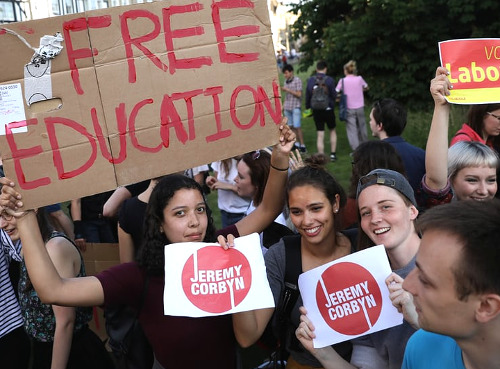
Currently, Young Labour has five national positions elected by the whole membership – Chair, International Officer, two Ordinary Reps and an NEC youth representative. Should these roles be analysed, evaluated and expanded upon in a concrete manner, they could provide the basis for an elected political secretariat to the wider Young Labour National Committee, and could provide the organisational core of Labour’s youth membership. To heed Michels’ warnings on the tendencies of creating elite formations within the organisation – as well as to maintain vitality and avoiding organisational rot – there should be a one-term limit of two-years for elected full-time roles, and a limit of two continuous two-year terms for the wider National Committee.
The question of the NEC is of paramount importance, also. The current system offers young members a single representative on Labour’s highest elected governing body. If Young Labour’s NEC representation increased in proportion to its membership in the past two years, then there would currently be six young member representatives sitting. In the spirit of generosity, we request, cap in hand, merely one more representative – a young trade unionist. This would not only double the level of youth representation on the NEC, but would also allow for the representation of both the political and industrial wings of our movement within the party’s highest body.
In line with the long march of online progress, the Youth Representative (Political) would be elected by OMOV ballot, alongside the other elected position. The Youth Representative (Industrial) would be elected by party affiliates. Ideally, both would become full-time roles – like the NEC representative of our predecessor, the LPYS – and would be tasked with organising both young members in the workplace and in the party.
The integration of Labour Students into the structures of Young Labour, as an organisational current or ‘stream’ would further aid the party youth in its development. University and FE Labour Clubs provide fertile ground for debate and discussion amongst the young within our party, for these to be separated from the main organisation of the youth is nothing but a deprival of key organisational potential. At present far more resources are dedicated on a slither of the party’s students than its young workers. On top of this, the organisational separation from young workers has led to the development of a toxic, individualistic, non-class oriented politics amongst the party’s student milieu. The role of Labour Students should be to instill the politics of the labour movement into that of the student movement, increasingly the opposite is the reality. Integration into a much broader youth organisation, linked directly to the day to day lives of working people, will go some way to hegemonising socialist politics inside the student movement.
Intervention from above is necessary to fulfil the honest aspirations of our left-leaning membership for a dynamic and vibrant socialist youth movement. Insofar as members’ capacities for self-organisation do exist, it tends to be only amongst those who have recently arrived from the organisational culture of the far-left groupuscules, keen on recruiting people to their narrow sect rather than developing comrades within the broad movement.
It will take time to educate and equip our party’s youth with the tools they need to govern themselves. Until comprehensive political education is rolled out across the board, the need for a stable central organisational body will persist. The autonomy of local constituency organisations should be respected and encouraged, organised on a constituency basis and affiliated with the relevant local party. Local groups should be organised much more like radical assemblies for debate and self-organisation rather than the highly structured formalised meetings that characterise the adult party, encouraging active participation by the whole membership in laying the groundwork for a vibrant left youth culture and socialist future.
However, we must be honest about our current limitations. Under the present conditions, far too many local groups would be hollow and directionless without a central organising body that can broadly define and nationally guide the activities of groups in the medium term; as Young Labour’s essential infrastructure is built and the membership developed, its structures should be re-evaluated to best meet the needs of the day. The development of a digital democracy platform to help set Young Labour’s national and regional political-strategic direction should be actively encouraged, and should aim, through integration with social media networks, to give a ‘natural’ feel to democratic political participation.
As the capacities of the membership are raised and the organisational infrastructure built, elements of delegate democracy could potentially be introduced to increase the responsiveness of the organisation to the on-the-ground situation, making Young Labour permanently relevant in its responses to issues and events. It would be damaging to doubt the validity of different democratic models; a truly participatory organisation requires a mixture of different democratic processes to be effective. Representative, delegate and direct democratic processes should all play a role in Young Labour’s democracy.
These ideas are all sketches – it must be emphasised that whatever recommendations come out the coming Democracy Review are not set in stone. This is why our political autonomy is so vital and important. As conditions change, so must Young Labour. Not just to make the organisation more flexible and responsive to the needs of our ordinary members, but to prevent the organisation’s decay, to ensure that the organisation does not become detached from the reality of life in this country, and that it maintains the highest relevance on the street, the workplace, the ward and branch meeting, and society as a whole.
Should these recommendations be followed up on, we must be sober about the weighty tasks we set ourselves. But just as sometimes, history needs a push, so do we. We aim to change the world, changing our party is but the first step on the road to the glorious light of the sunshine of socialism. •
Originally posted on medium.com/@maxshanly.


